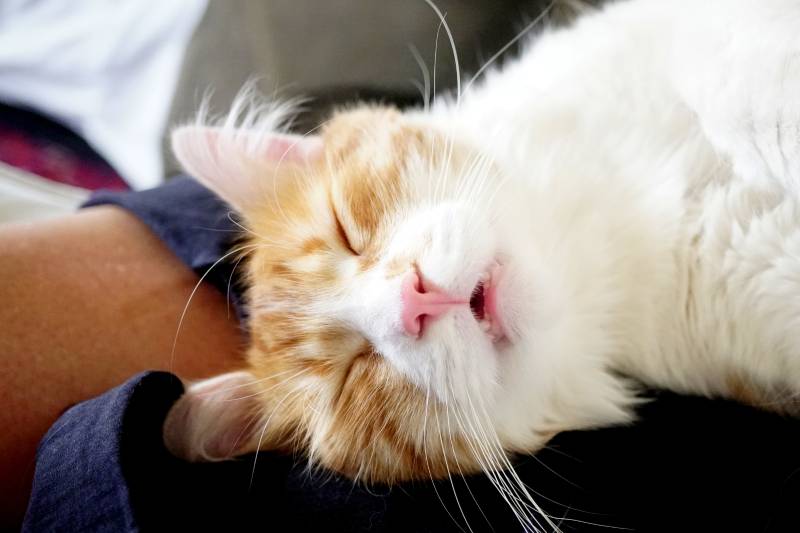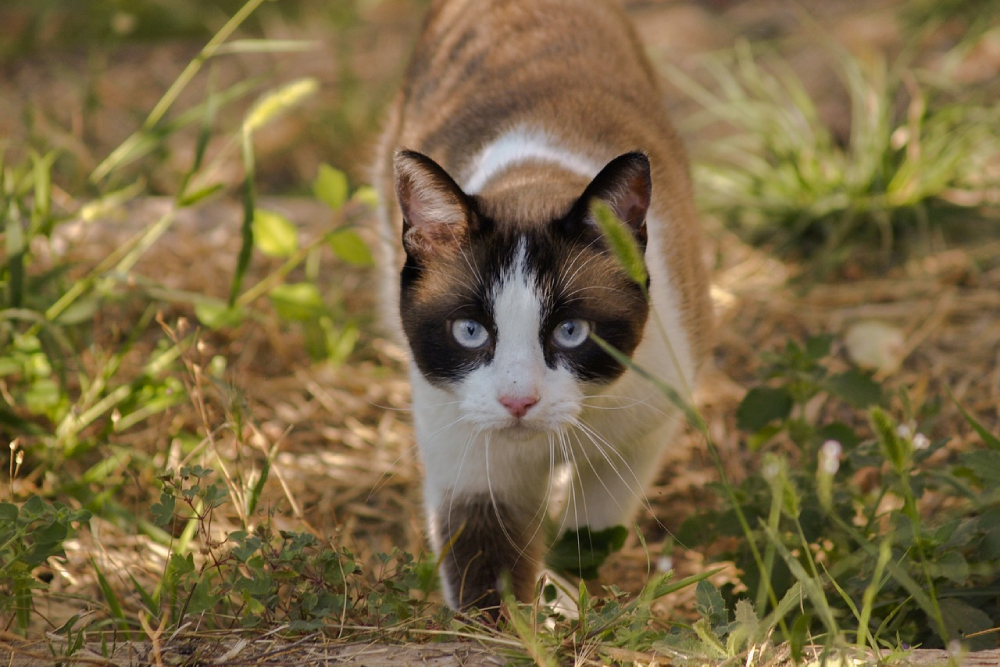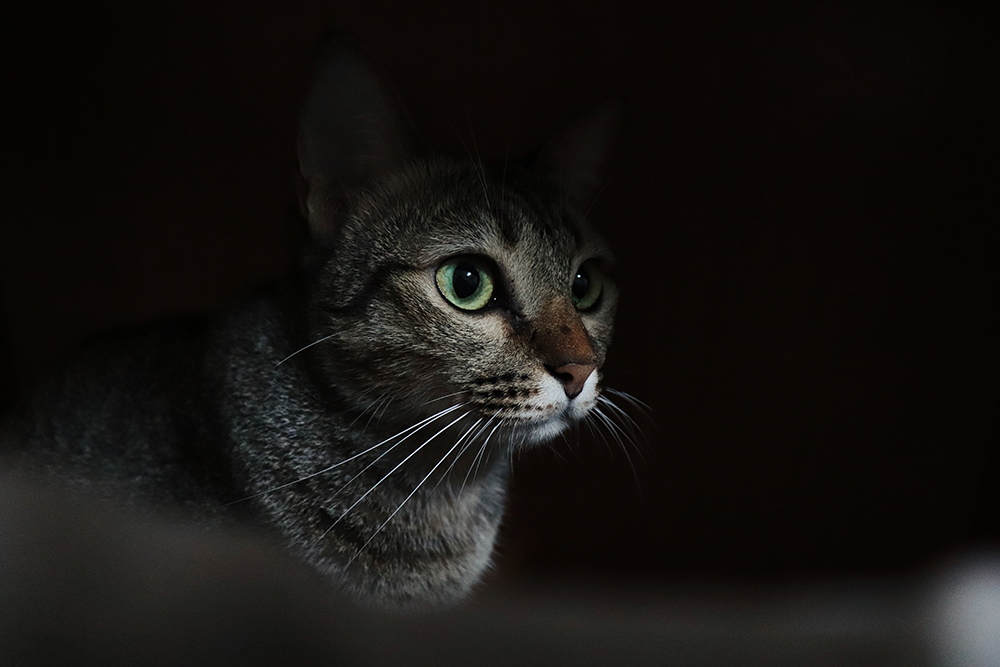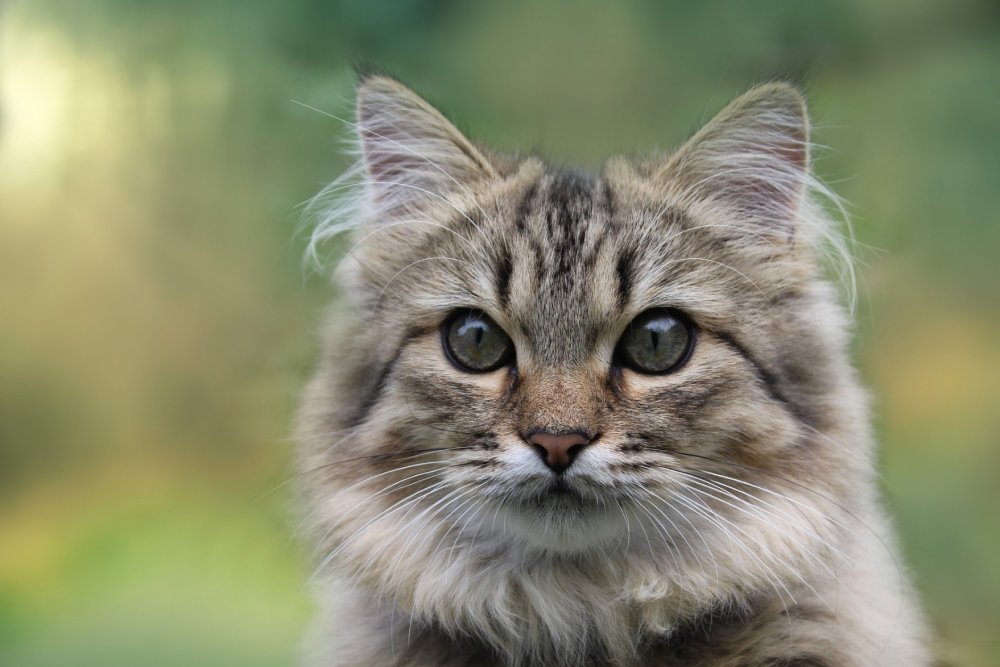Picture this—your cat is sprawled out beside you, snoozing away, when suddenly you hear the cutest sound from them. What is it? They’re snoring! A snoring cat can be downright adorable (and occasionally a bit annoying if they’re a particularly loud snorer), but is cat snoring normal? Or should you be worried when you hear your kitty doing this?
While snoring in cats isn’t quite as common as it is in canines, it is still normal. That said, a snoring cat could be doing so because of an underlying medical issue. So, it’s important to know when cat snoring is normal and when you should be concerned. Here’s what you need to know about felines and snoring.
What Is Snoring?
Ever wondered what exactly snoring is, or rather what creates the sound of snoring? Sounds that occur when someone (human or feline) snores are created by loose tissue in the upper airway that vibrates. The upper airway includes the throat, nose, and back of the mouth, and when the passages in these vibrate loud enough to be heard, you have snoring. Most of the time, snoring happens because these upper airway tissues are simply relaxed enough to vibrate during sleep.
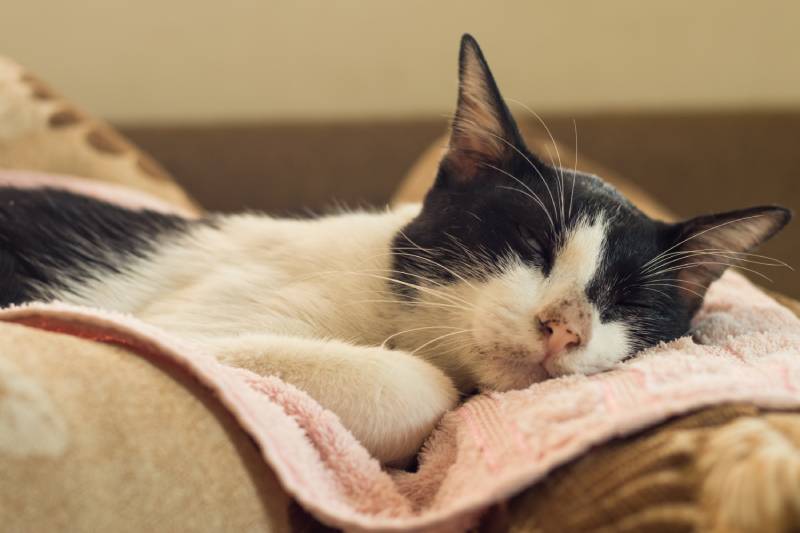
The 5 Reasons Cats Snore
So, is your cat snoring because they’re so relaxed during sleep or for some other reason? What are the most common reasons a cat may snore?
1. Weight
Obesity has become a significant problem in the feline community, so many cats carry a few extra pounds more than they should, which could be the reason they are snoring. Cats who are overweight are more likely to snore than those who are not due to having extra fat around the upper airways and vibrating tissues that cause snoring. Just one more reason to ensure your pet is eating healthy and maintaining an ideal weight!
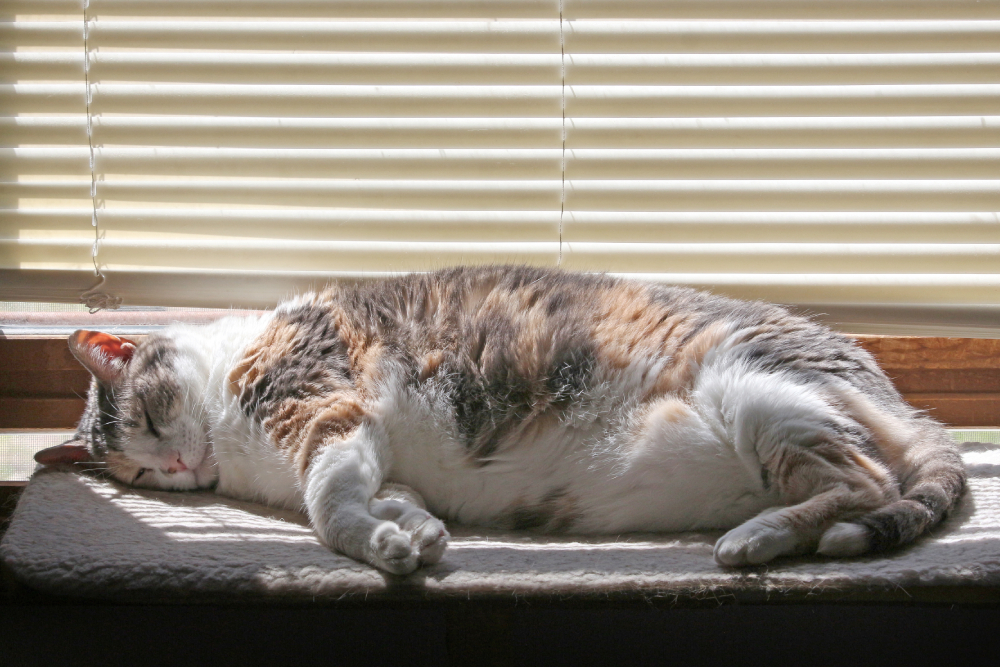
2. The Way They’re Sleeping
Cats sleep in some pretty odd positions due to their crazy flexibility. Sometimes, the position they’ve landed in during sleep is what causes them to snore. If your cat was sleeping peacefully one moment, then switched positions and started snoring, they probably have just angled themselves in some way that is causing the snoring. It should stop once they change positions again!
2. Head Shape
Some felines are more prone to snoring because of the shape of their heads. Breeds with brachycephalic syndrome, or flattened faces, have shorter bones in their nose and might have smaller nostrils, which can make them more likely to snore. These breeds might also have other features that make them snorers, like elongated soft palates, which could block part of the entrance going to the windpipe. So, if your cat is brachycephalic and makes odd noises while they sleep, this is probably why.
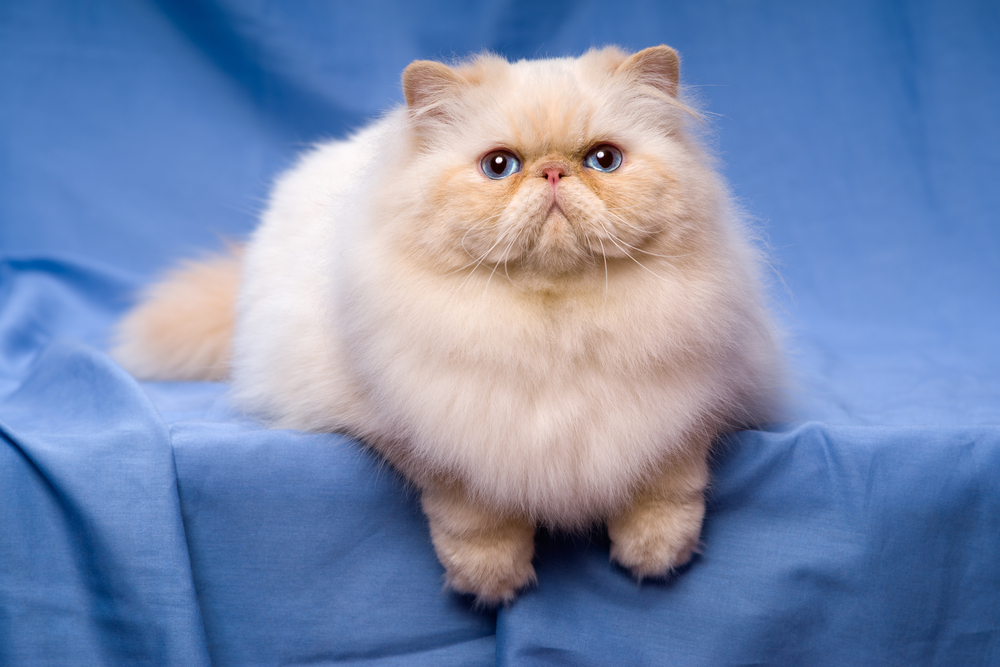
3. Issues With Health
Snoring can also occur because the cat has some sort of underlying health issue. Most times, this will be a health problem with the respiratory system, so it could be an infection, rhinitis, asthma, or allergies. If your pet is dealing with some sort of respiratory illness, they’ll likely also have a runny nose or eyes, cough, or sneeze. Unlike snoring, which occurs when asleep, a stertor is a similar noise in an awake animal that indicates abnormal breathing. A stridor is a more high pitched breathing sound that indicates a problem with the windpipe or larynx. If you notice your cat has a stertor or stridor, consult with your veterinarian. If your pet is having trouble breathing, take them to the nearest emergency clinic.
We suggest you contact a vet online if you need urgent veterinary advice.

If you need to speak with a vet but can’t get to one, head over to PangoVet. It’s an online service where you can talk to a vet online and get the personalized advice you need for your pet — all at an affordable price!
4. Foreign Objects
You’ve probably heard of a cat having foreign objects in their body because they ate something they shouldn’t have, like string, but foreign objects in the nose? It can happen, and if it does, it could cause snoring. What sorts of foreign objects could a feline have in their nasal cavity? Usually, objects such as seeds or blades of grass. A cat might also have an object in the nasal cavity or canal in the form of polyps or tumors.
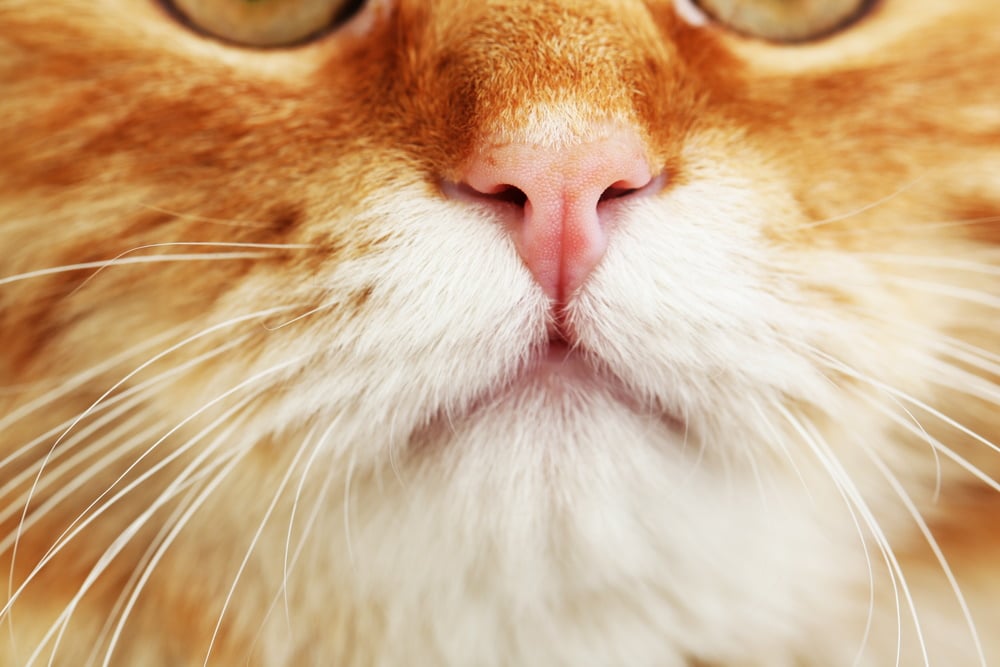
When Should I Worry?
Now that you know why a cat could be snoring, how do you know when you need to be worried about it?
A snoring cat is usually fine, but if your cat has never snored before and suddenly starts snoring, you may want to contact your vet. You should also consider calling your vet if your pet’s snoring is suddenly much louder than before. And if you see your kitty having a runny nose, sneezing, or coughing, it’s time to take them to the vet.
Also, pay attention to whether your cat is experiencing distressed breathing when they’re awake. If your pet is breathing through an open mouth, panting, breathing heavily, or wheezing, there could be a serious problem.
Can I Get My Cat to Stop Snoring?
It really depends on the reason they’re snoring in the first place. If your cat has a polyp, your vet may want to do surgery to remove it. If your pet is ill with an upper respiratory infection, then medication should help. If your cat is overweight, then losing weight will help. But if your pet is simply a normal cat snorer, really, the only thing you can try to get them to snore less is to help them sleep in a comfortable position. Sometimes placing a humidifier in the room with them helps by hydrating the airways, but keep in mind this should only contain water as cats are very sensitive to inhaled oils and other additives.
Final Thoughts
Cat snoring is fairly normal, and there are several reasons why your cat may be snoring. They could be snoring due to the shape of their head, because they’re a bit overweight, because of medical reasons, because of the position they’re sleeping in, or because of foreign objects. In most cases, a cat snoring isn’t something to be concerned about, but if your pet has signs such as coughing or sneezing or suddenly begins snoring out of nowhere, it’s time for a vet visit.
Featured Image Credit: Barlika, Shutterstock

